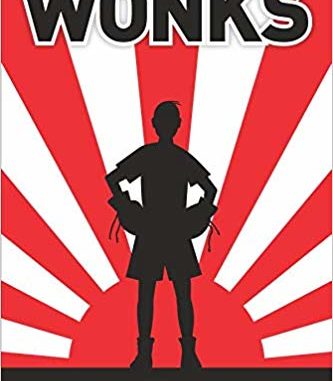
Review Fix chats with author William Reese Hamilton, who discusses his new article, “Let’s Not Obscure History’s Lessons By Eliminating Insensitive Words†and his novel, “Wonks.â€
About “Let’s Not Obscure History’s Lessons By Eliminating Insensitive Wordsâ€:
At what point does paying careful attention to how we speak – to how we refer to certain events, groups and sentiments – cross the boundary between being simply “politically correct†and become censorship?
William Reese Hamilton, former WWII prisoner and author of Wonks, asks this question in a new article titled “Let’s Not Obscure History’s Lessons By Eliminating Insensitive Wordsâ€. In it, he draws on his recent experience getting caught up in this debate due to his novel’s historically accurate but socially insensitive language, and explains what may be lost if we remove all insensitive references from books and literature that are set in the past.
Review Fix: What inspired you to write this article?
William Reese Hamilton: I was about to be interviewed on a local TV station about my novel WONKS, based on my experience in a Japanese prison camp during WWII. The narrator/protagonist is a 15-year-old who has spent three years suffering under very rough circumstances. He freely uses the word “Jap†when referring to the enemy. The station called off the interview, fearing his use of Jap might be taken out of context and used against the moderator and the station.
Review Fix: Why do you think there is this seemingly excessive need to be politically correct today?
Hamilton: Minorities have been abused over many years by the dominant group of a particular region. What happened to Japanese Americans is something we should be morally upset about. Looking at our history, we can be sensitive to wrongs of previous generations and take them into consideration when evaluating who we are and where we’ve come from.. As Steinbeck did in The Grapes of Wrath. But that is not trying to whitewash the past. I will still read Shakespeare, Twain and writers like J.T. Farrell, whose characters used every foul ethnic name his Chicago mugs could dream up. I will still listen to comedians who use epithets painfully. But using an epithet in a routine is very different from directing it toward the person in front of you. Or behind his back.
Review Fix: What’s your solution?
Hamilton: Don’t just have a negative reaction to every portrayal of your group that comes from outside your group. The question might be asked, “Can a white author create a black character? Can a man create a woman character?†Well, I damn well hope they’ll try. The more we try to walk in an Indians moccasins, the less likely we’ll treat him as an object. I live in a Venezuelan village where I’m the only Gringo. I have a clue what it feels like to be an object.
Review Fix: What are your goals for this article?
Hamilton: I was naturally stung about losing a TV interview and the chance to talk about what it’s like to be an enemy prisoner as a boy. Our camp was in Manila, a beautiful city completely destroyed in a single month. We experienced extreme starvation and brutality along with the full force of modern warfare. Yet the survivors moved on..I think that’s worth telling.
Review Fix: What’s next for you?
Hamilton: I have another novel in the wings, but right now I want to give WONKS the fair chance I think it deserves. I want people to get to know Johhnny, Polecat, Ruth and Harry, Southy Jack and the Colonel. And Abiko, the ruthless lieutenant of the guard.
Review Fix: Anything else you’d like to add?
Hamilton: WONKS is available in paperback, digital book and audiobook through Amazon, Barnes & Noble, and other bookstores. Perhaps the best deal right now is with Audible, where you can listen to WONKS for free.


Leave a Reply